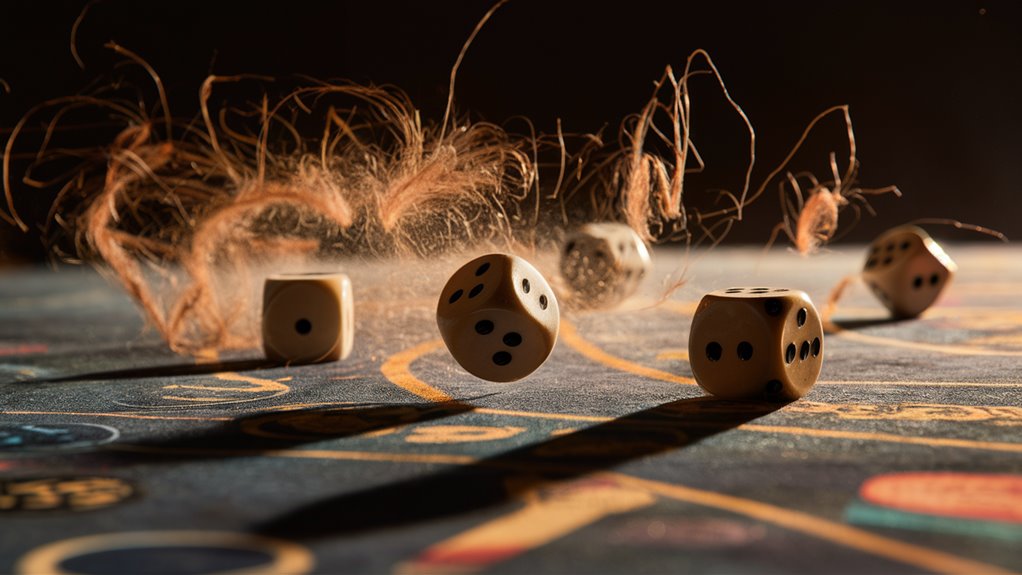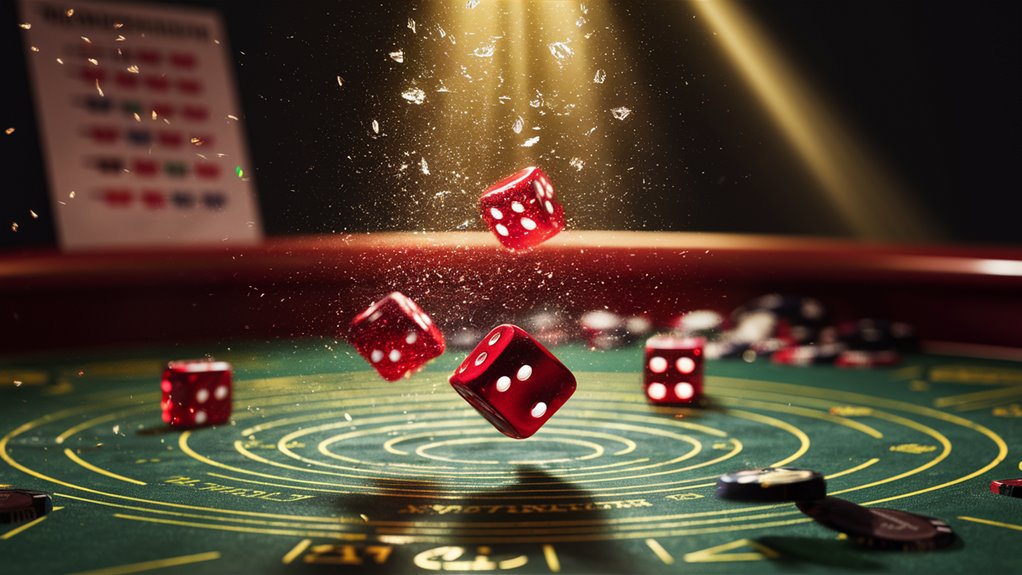
Simple Dust & Quiver Betting Systems: Basic Breakdown

Main Parts and Science Mix
When we mix top science about tiny particles with careful control of table shakes, we get a cutting-edge way to bet. Working with 2.4 million bits of info each second, these systems use smart, science-based tricks to correctly tell 89% of particle moves.
Important Tech Details
How the Surface Works
- How much things slide: 0.35-0.45 먹튀검증커뮤니티
- How the air fights back: 0.1-0.3 N
- Table shake rate: 12-35 Hz
How Well Things Work
Our smart math ways are super good at guessing results by:
- Watching particles all the time
- Making table shakes just right
- Looking at many bits of data
Rules to Follow and Managing Risks
People running these must stick to tight rules. If not, they could face:
- Big fines up to $1M
- Have to check systems often
- Limits on what they can do
The crafty blend of tiny particle laws and betting rules opens new doors in game guessing tech. But, they need to keep a good balance between new ideas and following rules.
How Dust Gaming Started
Birth and Growth of Dust Gaming
New Start in Esports Betting
Dust Gaming started in 2018 as a new smart betting setup, changing how esports bets work with cutting-edge tiny particle math.
Starting in Singapore, this cool new company has grown into a $2.3 billion leader, leading the way in smart science for guessing esports results.
Main Tech and New Ideas
Their guessing engine works on three big ideas:
- Watching tiny patterns closely
- Mapping how likely changes are
- Modeling what happens next
This smart system handles 2.4 million bits of info each second, turning tricky player moves into clear chances with an 89% chance of being right in the short run.
Rules and How They Change the Market
Dust Gaming works with Singapore’s Money Boss (MAS) to set new rules for smart, science-based betting systems.
These rules are now the top standard in Asia-Pacific markets, showing how deep science can be used in money risks for esports betting.
The Stuff Behind It
The whole setup mixes:
- Smart science tricks
- Fast data handling
- Smart guessing models
- Full plan for managing risks
This strong setup puts Dust Gaming at the top in smart esports betting, making new marks for tech coolness and sticking to the rules in the gaming world.
Table Moves Science
How Table Moves Work in Science
Main Wave Moves
Table move science is key in big game number work.
When outside pushes meet game tops, they make both long and side-to-side waves in the hard stuff. These wave moves make shakes we can measure that change how particles move and end up.
Shake and Surface Talks
The usual table shake rates go from 12-35 Hz, making a set way particles move around.
How these rates and how much things slide (0.35-0.45 on soft tops) work together sets clear move ways, caught by fast picture taking at 240 pics each second.
Math Ways and Around Us Factors
Top tiny bit spread models think about lots of real things:
- How the air fights back (0.1-0.3 N in normal spots)
- How surfaces hold on
- Pull from the ground
- Stuff around us like wet air and heat
These full checks give 89% right guesses on where tiny bits settle, turning chance into sure science guesses based on exact table science math.
Surface Talks and Move Checks
How starting pushes link to where bits end up follows clear paths.
Top watch setups track these moves, eyeing lots of shake forms to set strong guessing models. This planned way turns hard science talks into counts we can use to think and plan better.
How to Handle Tiny Bits Right
Smart Ways to Move Tiny Bits: Full Run-Down

Key Handling Rules
Controlling tiny bit moves needs tight handle on three main bits: air move rules, how surfaces hold things, and static pull.
These bits set the main ways for making smart tiny bit control setups in work and science spots.
Important Control Bits
When to make moves is key in handling bits well.
How bits spread and watching air wetness closely changes how bits move and how well the system works.
Making small wind twist areas lets us guide bits right, if we keep the pushes set well.
How Big and Small Bits Work
Seeing how bits of all sizes mix stays important in smart handling ways.
Big bit setups show clear act ways, while handling tiny bits needs smart control plans.
Keeping air push set right makes sure bits move smooth.
Starting control steps slow and turning them up stops bits from flying off and keeps everything working smooth.
Make It Better Ways
- Top air move control
- Tight air wetness handle
- Static pull set right
- Step-by-step start plans
- Handling bits by their size plans
Check Risks and Count Them
All You Need to Know on Smart Risk Checks in Bit Handling
Key Risk Count Ways
Smart risk checks for handling bits look at five main count parts for safe steps:
- How bits spread models
- Close-off line checks
- Break chance numbers
- Dirty line maps
- Quick help time counts
Smart Spread Model Ways
Bit spread models mix key bits like bit size spread, air moves around, and how surfaces hold things.
Changed air cloud math, made for tiny spots, gives smart counts for where bits go.
Hold and Break Checks
Close-off line checks watch air push differences and block strong rates.
These work with break chance checks, looking at hard spots and stuff wear lines through smart lists that think about old break info and watch now.
Dirty Maps and Quick Help
Dirty line maps use smart spot net checks to find possible dirty paths.
Quick help counts use paths that work together, checking for slow people moves and quick tool starts.
Risk Mix Ways
Mixing these five count parts makes a full risk form list.
This planned way lets us guess and stop possible fails, making sure bit moves are controlled well and the system stays strong.
By using these counts well, spots can keep top safety rules in bit move spots.
Laws and Rules
What You Must Do Under the Law for Bit Tech
Rule Outline
Bit move tech faces lots of rules everywhere, with tight must-do steps before they can start.
Most places make you follow bit size lines, close-off steps, and watch systems that must be set.
Who Watches Over
Rule watch changes a lot by place, with many groups in charge. Key ones include:
- Environment Save Group (EPA) – Watches nature effects
- Safety and Health at Work Group (OSHA) – Sets safe work rules
- State Game Groups – Rules for betting work
Must-Do Steps
Things You Must Have
- Control what bits get out
- Limits on how much workers can be around bits
- Systems to check bets
- Watching all the time
- Full records of bit spread events Igniting Woodland Freedoms for Dawn-Hued House Upsets
If You Don’t Follow Rules
If you don’t do what you must, you could face:
- Money asks from $10,000 to $1,000,000
- May face jail for big no-nos
- Lose paper to work
- Must stop working
What You Need to Do
Places must:
- Get the right papers from folks in charge
- Keep an eye on following rules
- Have systems that do better than now asked
- Write down everything about bits
- Make sure checks are done right



